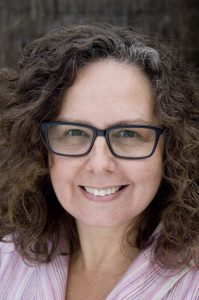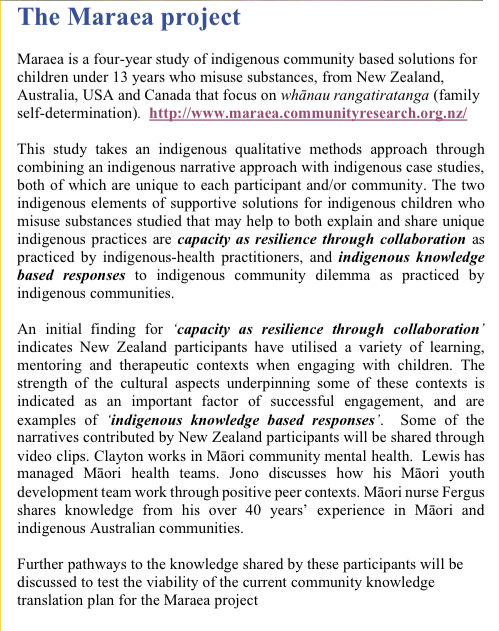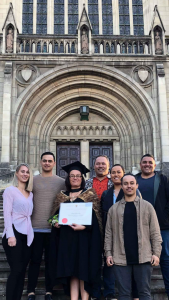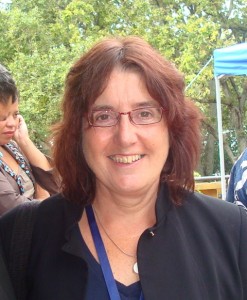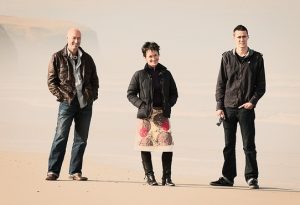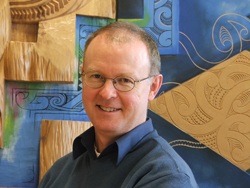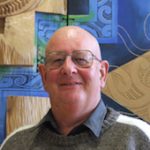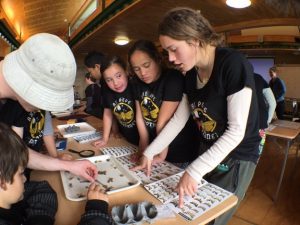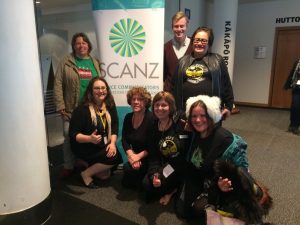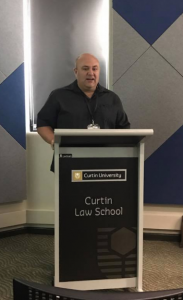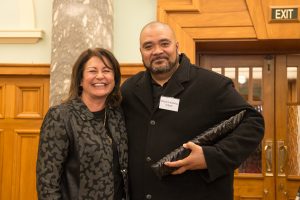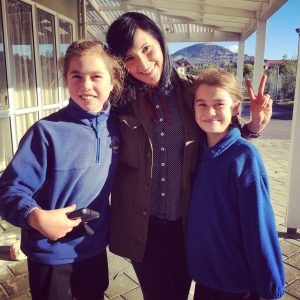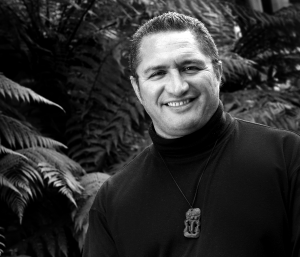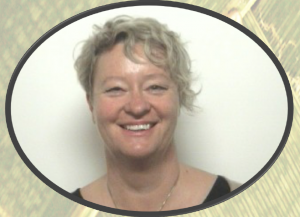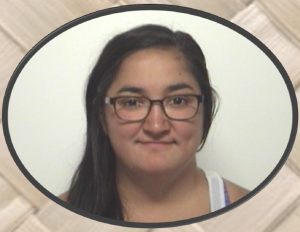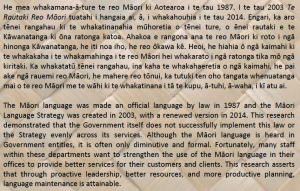Te Tumu’s “new” lecturer
Te Tumu is excited to announce the appointment of a “new” lecturer. Of course, many will already know Dr Erica Newman, as she has studied and worked in Te Tumu in various roles over many years. Moving into a confirmation-path lecturer’s role in the Indigenous Development programme is the culmination of all her hard work.
Erica’s research has focused on children and adoption. She undertook her BA (Hons) in Te Tumu, completing a dissertation on Māori, European and “half-caste” children in New Zealand from 1840-1852, with a specific focus on the care of children. She followed this with her MA, a history of adoption/whāngai within Aotearoa New Zealand, including the concept of “whāngai”. This research contains a special emphasis on transracially adopted Māori children and its effects on future generations, something pertinent to Erica’s own whakapapa. Her PhD, completed in 2018, looked at the adoption of children in Fiji during British colonial rule of 1874- 1970, including both indigenous and colonial practices and institutions. Erica has also attended various conferences, and published on her research, including an article on transracial adoption in the prestigious American Indian Quarterly in 2013.
More recently Erica has managed to get through to the second stage of a Fast Start Marsden application on the historical effect of adoptions for descendants of Māori adoptees, how adoption not only affects the adoptee, adoptive parents and biological parents but the ripple effect carried down to following generations. This includes the importance of whakapapa in how Māori adoptees are able to, or not able to, identify themselves as Māori. We have our fingers crossed that Erica’s Marsden bid is successful, as this will be exciting and useful research.
Erica has managed a strong research trajectory despite a heavy teaching load. She has long been responsible for Te Tumu’s giant MAOR102 Māori Society paper, managing hundreds of students each year and a troupe of tutors. Last year she was part of team organising Te Tumu’s modules in the (even larger) POPH192 Population Health paper. But since 2008 Erica has also taught in a variety of other papers in all of Te Tumu’s programmes over the years, as well have undertaken supervision duties in the Master of Indigenous Studies programme. We’ve seen a number of innovations, such as an in-house journal for the MAOR202 Tikanga and Māori paper, to give undergraduate students an idea of what it is like to publish an article, and developing special tutorials for MAOR102 students who come to university already very knowledgeable on tikanga Māori.
So in many ways, not too much is going to change for Erica—she will still be working flat-tack on her research and teaching. It’s just wonderful that we can all celebrate in her success.
Te Tumu’s Postgraduate Graduands
Te Tumu would like to congratulate its four postgraduate students who will be graduating this December.
Roma-Kiritahi Simmons-Donaldson (Ngāti Porou, Taranaki, Ngāti Tūwharetoa) is graduating with a BA(Hons) in Māori Studies. Her dissertation, “Walking in two worlds – Te reo Māori in urban New Zealand” was supervised by Dr Karyn Paringatai.
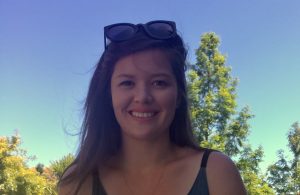 Abstract: The aim of this dissertation is to examine ways in which te reo Māori (the Māori language) can exist in urban New Zealand. Specifically, it will outline a history of te reo Māori, before looking at different ways in which language can be acquired and developed in an urban environment. It will then analyse ways in which te reo Māori has enabled Māori people to negotiate their place in urban New Zealand, in the absence of those environmental stimuli that traditionally inform and enhance a Māori identity and worldview. Central to this dissertation is the concept of intergenerational language transmission. As such, the experiences of my grandmother, mother, and myself will be presented throughout this dissertation to provide context, and to illustrate the interaction between urban migration, language, mechanisms of language acquisition and development, and identity, in a way that contextualises and enriches the literature.
Abstract: The aim of this dissertation is to examine ways in which te reo Māori (the Māori language) can exist in urban New Zealand. Specifically, it will outline a history of te reo Māori, before looking at different ways in which language can be acquired and developed in an urban environment. It will then analyse ways in which te reo Māori has enabled Māori people to negotiate their place in urban New Zealand, in the absence of those environmental stimuli that traditionally inform and enhance a Māori identity and worldview. Central to this dissertation is the concept of intergenerational language transmission. As such, the experiences of my grandmother, mother, and myself will be presented throughout this dissertation to provide context, and to illustrate the interaction between urban migration, language, mechanisms of language acquisition and development, and identity, in a way that contextualises and enriches the literature.
Future plans: “I have just accepted an offer to undertake PhD study at the University of Otago, which will look to fill a gap in the conversation surrounding bilingualism and intergenerational language transmission, and explore in depth the journey of language transmission between second language speaking parents and their first language speaking children. It is my hope that this thesis will help to increase our collective understanding of the intersection of these two stark pathways of language acquisition, and help whānau who are looking to do the same.” Dr Karyn Paringatai and Professor Poia Rewi will supervise Roma’s doctoral thesis.
Pia Cristóbal Kahn undertook the thesis pathway for her Master of Indigenous Studies degree. Her thesis, “Sacred Katuiran: Decolonial Sensibility in the Katipunan Papers / An ‘indigenist hermeneutic’ of 19th century Tagalog revolutionary texts” was supervised by Professor Poia Rewi.
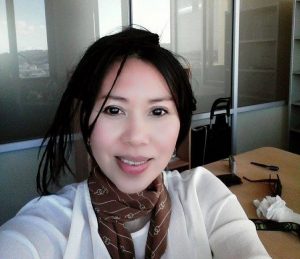 Abstract: Indigenous meanings and renderings tend to be forgotten and buried, and even erased, by non-indigenist interpretations and translations. This is a case study of an ‘indigenist hermeneutic’ approach to a re-translation of the “Kartilya” and other selected texts authored by members of the Katipunan, a 19th century revolutionary movement against Spanish colonial rule in the Philippines. The Tagalog word katuiran, which is often translated to ‘reason’, in support of a prevailing narrative in Philippine historiography that credits the European Enlightenment for primary Katipunan ideas, becomes central to the research as intertextual analyses unearth a variety of its forgotten meanings and usages, and concomitant mistranslations. A comparative conceptual analysis of katuiran and the Māori word tikanga opens up a viable hypothesis for an expanded indigenous meaning of katuiran, that necessitates the re-translation of many passages and other principle ideas of the Katipunan. This re-translation results in a re-narration that depicts an indigenous 19th- century ‘decolonial’ Tagalog movement that sought to delink from European constructs epistemically, ethically and politically; and thus, a re-narration that offers a challenge to a ‘European Enlightenment narrative’ for the Katipunan revolution.
Abstract: Indigenous meanings and renderings tend to be forgotten and buried, and even erased, by non-indigenist interpretations and translations. This is a case study of an ‘indigenist hermeneutic’ approach to a re-translation of the “Kartilya” and other selected texts authored by members of the Katipunan, a 19th century revolutionary movement against Spanish colonial rule in the Philippines. The Tagalog word katuiran, which is often translated to ‘reason’, in support of a prevailing narrative in Philippine historiography that credits the European Enlightenment for primary Katipunan ideas, becomes central to the research as intertextual analyses unearth a variety of its forgotten meanings and usages, and concomitant mistranslations. A comparative conceptual analysis of katuiran and the Māori word tikanga opens up a viable hypothesis for an expanded indigenous meaning of katuiran, that necessitates the re-translation of many passages and other principle ideas of the Katipunan. This re-translation results in a re-narration that depicts an indigenous 19th- century ‘decolonial’ Tagalog movement that sought to delink from European constructs epistemically, ethically and politically; and thus, a re-narration that offers a challenge to a ‘European Enlightenment narrative’ for the Katipunan revolution.
Future plans: “I plan to continue my research on the doctoral level, with a focus on Tagalog cultural conceptualisations, and drawing from the fields of indigenous studies, cultural linguistics, memory studies and oral history.”
Te Tumu also has two staff members who are graduating with their PhDs.
Dr Tangiwai Rewi (Waikato, Ngaati Tiipaa, Ngaati Amaru, Ngaati Tahinga) has completed a doctorate, “Examining traditional Maaori knowledge frameworks and intergenerational knowledge transmission. “Titiro, Whakarongo” – he huarahi ako noo ngaa raa o nehe.” Professor Michael Reilly was the primary supervisor, with Professor Helen May as co-supervisor until her retirement in Dec 2016, and Dr Michelle Schaaf as an Advisor.
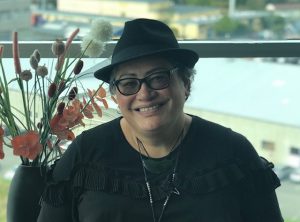 Ariaa: Abstract: This thesis investigates the way knowledge is transmitted inter-generationally, and the teaching and learning methods (or pedagogies) used to do this. The transmission referred to here relates to knowledge about practices associated with the Kiingitanga ‘kingship movement’ of which the Waikato iwi ‘tribe’ have long been the kaitiaki ‘guardians’. The pouwhirinaki ‘participants’ are from the Ngaati Tiipaa and Ngaati Amaru hapuu ‘sub tribes’ from the Port Waikato area; however, participants also came from other hapuu and iwi within the Waikato-Tainui rohe ‘region’.
Ariaa: Abstract: This thesis investigates the way knowledge is transmitted inter-generationally, and the teaching and learning methods (or pedagogies) used to do this. The transmission referred to here relates to knowledge about practices associated with the Kiingitanga ‘kingship movement’ of which the Waikato iwi ‘tribe’ have long been the kaitiaki ‘guardians’. The pouwhirinaki ‘participants’ are from the Ngaati Tiipaa and Ngaati Amaru hapuu ‘sub tribes’ from the Port Waikato area; however, participants also came from other hapuu and iwi within the Waikato-Tainui rohe ‘region’.
I set out to analyse whether there is any correlation between the traditional Maaori knowledge frameworks of old being utilised in the way we learn the roles associated with three domains on the marae ‘communal gathering place’ during three key Kiingitanga events. This thesis explores how learning was undertaken in ngaa whare waananga tawhito ‘traditional houses of learning’ before documenting my participants’ narratives about how they learned their roles. It concludes with my analysis of these findings and offers some recommendations, based on what the participants said, about cultural revitalisation looking forward.
Future Plans: After an enforced leave period from roles and responsibilities in order to complete the thesis, Tangiwai is now relishing the challenge of resuming these expectations. From January 2019 she takes on the 0.5 Academic Dean Maaori position in the Division of Humanities. This is in addition to being the new Co-chair of Poutama Maaori, the Maaori academic staff network across the Otago University campuses which she recently took up in September 2018.
On the research front she is busy implementing one of the translational priorities of her PhD research, Tuupuna Times, which encourages whaanau to record the life stories /narratives of their ruuruhi (elderly women) and koroheke (elderly men). While she has continued to teach her Maaori education papers of MAOR 213, 313 and 413, she also expects to conduct comparative research with two other New Zealand iwi and two other indigenous tribes from Northern America related to her PhD study during her pending Research and Study Leave forecast for the back end of 2020 / start of 2021.
Dr Erica Newman is also graduating, having completed a PhD on Adoption in Fiji. Associate Professors Jenny Bryant-Tokalau and Jacqui Leckie supervised Erica’s thesis, assisted by the Advisory Committee of Professor Michael Reilly and Dr Michaelle Schaaf.
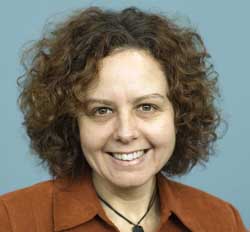 Abstract: The arrival of Europeans in Fiji, from the late 1700s, impacted the established social structures of the indigenous communities, removing what were considered inappropriate social behaviours and introducing concepts and values which altered the societal relationships and status of iTaukei (indigenous Fijians). This included the introduction of colonialist terms and practices of ‘orphan’ and ‘adoption’. Scholars such as Vern Carroll, Ivan Brady and Ward Goodenough have questioned whether the use of these terms were appropriate when referring to the traditional practices of child circulation amongst kin within Oceania. Yet the iTaukei population came to use these terms, practices and their meanings, although not entirely in the same context as the European.
Abstract: The arrival of Europeans in Fiji, from the late 1700s, impacted the established social structures of the indigenous communities, removing what were considered inappropriate social behaviours and introducing concepts and values which altered the societal relationships and status of iTaukei (indigenous Fijians). This included the introduction of colonialist terms and practices of ‘orphan’ and ‘adoption’. Scholars such as Vern Carroll, Ivan Brady and Ward Goodenough have questioned whether the use of these terms were appropriate when referring to the traditional practices of child circulation amongst kin within Oceania. Yet the iTaukei population came to use these terms, practices and their meanings, although not entirely in the same context as the European.
This thesis investigates the colonialist perspective of Fiji’s traditional child circulation and introduced European practices of child care, guardianship, adoption and orphanage institutions. The research covers a number of key topics that are relevant for this thesis. It begins with an understanding of Fijian kinship structure prior to, and just after, the arrival of the first Europeans. The research then explores colonial interventions of guardianship (the first being a consequence of the introduced Indian Indentured Labour Scheme). Missionaries brought with them the institution of orphanages and a history of these are explored (today orphanages are now known as Children’s Homes). The Child Welfare Department in Fiji is responsible for the placement of vulnerable children into safe homes. As they are an important part of guardianship and adoption today this thesis provides a history of how this scheme developed into a government department. In 1945 Fiji enacted the Adoption of Infants Act as a formal process for all children of Fiji, regardless of ethnicity, and this research follows the path of creation. Although the Adoption of Infants Act caters for all ethnicities of Fiji, ‘informal adoption’ or child circulation continued and continues to be practised by iTaukei. During the colonial period the colonial government accepted this customary practice as an acceptable form of child care.
This thesis provides a history of adoption and guardianship practices in Fiji during the colonial period of 1874 to 1970.
Future Plans: Erica will continue to work at Te Tumu, teaching and researching.
Ngā Pae o te Māramatanga Summer Internships
Are you a Māori pre-doctoral student who is interested in advancing your skills and capacity in Indigenous research, and wanting some paid work over summer? Or do you know someone who may be interested? Ngā Pae o te Māramatanga have 27 Summer Internships on offer. Closes 10 October.
**** CLICK HERE TO FIND OUT MORE ****
The Maraea Project: Indigenous Health Solutions
Dr Lisa Chant (Ngāti Whātua, Senior Fellow at Taupua Waiora Centre for Māori Health Research) is our guest presenter at the next Te Tumu Seminar, speaking on the Maraea Project and Indigenous-based health solutions. The seminar will be in Te Iringa Kōrero [3rd floor] of Te Tumu, 3pm on Friday 21 September. Everyone is welcome.
Latest Masters of Indigenous Studies Graduate
Graduation is always the culmination of a lot of hard work. At last week’s graduation, we had our latest graduate, Margaret Courtney, walk across the staff to collect her hard-earned Masters of Indigenous Studies degree certificate. Margaret, of Te Arawa (Tūhourangi,
Ngāti Whakaue, and Tapuika), also holds an LLB from Waikato University, and works as a Regional Advisor for Te Puni Kōkiri. I asked her to send me a short account of her studies, and the abstract of her research dissertation. Koia kei a koe, Margaret!
“My journey to complete my Masters qualification was a journey of personal growth, perseverance and enlightenment. Combining my experience of Whenua Māori, the Native Land Court system and integrating it with the history of our tūpuna and iwi has helped to fill knowledge gaps for my whānau. Given our ‘nuclear family’ upbringing my research emphasised the importance of Whenua Māori as a connection to our tūpuna but also strengthens our Whānau Mātauranga. It is this knowledge that we can pass onto our tamariki and mokopuna.
“The Master of Indigenous Studies programme at Te Tumu was the best option for me given I live and work in Rotorua. It provided a part time online option which complimented by mahi and lifestyle. The paper offerings provided choice and completing the dissertation cemented my learnings. I enjoyed the mixed forms of delivery and assessments.
“I am thankful for the support and patience of my supervisor Dr Paerau Warbrick. He provided good advice, steered me on track when needed, and helped me to extend my knowledge and research skills. Ka nui te mihi ki a koe, e whānaunga! To my whānau, your continued support is unwavering!”
Abstract
This research supports the view that whenua Māori is important in today’s global environment and remains a vital connection to our tūpuna, our iwi and our whānau history.
This is illustrated through an exploration of the author’s connection to Tūhourangi, an iwi of Te Arawa, the impact that the Native land legislation had on Tūhourangi and specifically the whenua, Rotomahana Parekārangi in the nineteenth century. The research explores the path of Rotomahana Parekārangi through the Native Land Court regime. The research concludes with an example of how the author’s whānau are making attempts to transmit their collective whānau mātauranga to the younger members of their whānau. This is in order to provide the whānau with experiences of the whenua, of their iwi and to understand the importance of their connection to the whenua derived from their tūpuna. It is important that the younger generation are cognisant of these connections and whānau mātauranga as, in time, they will become the kaitiaki of the whenua, and will need to pass this knowledge onto their mokopuna.
Te Tumu Graduates in May 2017
Eight Te Tumu students graduated in the May ceremonies last weekend.
Hine Te Ariki Parata-Walker (Ngāti Porou, Ngāi Tahu) completed a Master of Indigenous Studies (MIndS). Her research topic, supervised by Professor Paul Tapsell, investigated procedures around hahunga (the exhumation of ancestral remains) in modern times. Select Parata-Walker abstract for further details.
Karurangi Salu (Tainui, Ngāpuhi, Samoan) gained a BA(Hons) with her research, entitled “Māku anō tōku nei whare e hanga”, looked at how haka and waiata are used in teaching at Te Whare Kura o Rākaumanga to pass on Tainui history, reo, tikanga and whakapapa. Dr Karyn Paringātai supervised. Select Salu abstract for further details.
Rieko Hayakawa also graduated with a PhD in Pacific Islands Studies.
Congratulations also to our BA graduates.
Alice Anderson (Ngāi Tahu), BA in Indigenous Development/Te Kura Matanui.
Luaipouamalo Gafa (Samoan), BA in Pacific Islands Studies.
Maiora Puketapu-Dentice (Te Āti Awa, Tūhoe), BA in Māori Studies and History.
Tataioterangi Reedy (Ngāti Porou, Te Whānau a Apanui), BA in Indigenous Development/Te Kura Matanui.
Roma Simmons-Donaldson (Ngāti Porou, Taranaki, Tainui, Ngāti Tūwharetoa), BA in Māori Studies.
Rangahau Roundup
Semester 2 has been busy on the research front for Te Tumu staff and postgrads.
Te Tumu is still progressing with Te Kōparapara, a book on Māori culture, history and contemporary society, which is designed as a textbook for MAOR102 as well as for a general audience. Prof Michael Reilly is the main driver of this project, and has been ably assisted by Dr Gianna Leoni. This book, with an array of essays mainly written by Te Tumu staff, is under contract with Auckland University Press and should appear sometime in 2017.
Faculty News
Associate Prof Jenny Bryant-Tokalau has been having a busy Research and Study Leave. She has given two presentations in the USA in the last semester: ‘Food security and other risks in a time of climate change: traditional and contemporary forms of resilience’, to the Department of Anthropology, and ‘Small Island Pacific States: Dealing with Climate Change’ to the Department of Geology at Wheaton College in Massachusetts. In December she presented ‘Working in Context: The Commercial Potential of Customary Pacific Land’ at the Aotearoa New Zealand International Development Studies Network Ninth Biennial Conference ‘Pacific Currents, Global Tides’ Wellington, and ‘Dealing with disasters and social change’ to the Asia Pacific Biocultural Health ‘Big Ideas’ Workshop, in Dunedin, December.
Jenny has also had one chapter in an edited collection appear during this period: ‘Community responses to floods in Fiji: lessons learned’ In Calabrese, John (ed.) Humanitarian Assistance and Disaster Response: Rising to the Challenge. MAP Series, Middle East Institute, Washington. August (2016) issue. Click here to access it. She also has two book reviews published in New Zealand and Pacific Studies November, 2016; and Journal of the Polynesian Society 125 (1), 2016.
Jenny is planning to return to the Solomon Islands to carry out in-depth interviews on small and medium businesses on Kastom land, as well as to finalise book edits for Palgrave MacMillan Anthropology of Disaster Series: What the Pacific Islands can teach New Zealand about Climate Change.
As previous posted, Prof Paul Tapsell spoke at the Indigenous Plenary at the WAC-8 Conference in September. Paul and Associate Prof Merata Kawharu are also part of the large three-year Mauri-Whenua-Ora project within the National Science Challenge Land and Water: Toitū te Whenua, Toiora te Wai. This project is the only fully Māori-led and Māori-integrated research programmes of all NSCs nationally, and is looking at Maori land and water based innovation including: (1) micro economy development “Pa to Plate”, (2) Shared iwi innovation for Taitokerau as a model for other iwi and (3) a regional (Te Hiku) study looking at Maori land suitable use and value chains. Merata also has a forthcoming publication, “Indigenous Entrepreneurship: Cultural Coding and the Transformation of Ngāti Whātua in New Zealand” in the Journal of the Polynesian Society, 125, 4 (2016): 385-408.
Associate Prof Lachy Paterson gave a presentation entitled ‘U.S. Slave “Humor” in New Zealand Newspapers’ at the 109th Annual Meeting of the Pacific Coast Branch of the American Historical Association at Waikoloa, Hawai’i. He is currently writing up this paper, which looked at how imported racist discourses permeated New Zealand’s English-language newspapers. Lachy returned to his ongoing obsession with Māori-language newspapers, with “The New Zealand Government’s Niupepa and their Demise” published in the New Zealand Journal of History, 50, 2 (2016): 44-67.
Together with Associate Prof Angela Wanhalla (Dept of History and Art History), he has also sent off their manuscript “He Reo Wahine: Māori Women’s Voices from the Nineteenth Century” to Auckland University Press, and it should appear sometime in 2017.
Over summer Prof Michael Reilly hopes to write a paper concerning the research relationship between William Wyatt Gill of the London Missionary Society, and Mamae of Ngāti Vara, a church minister, on Mangaia during the 19th century. In the longer run, he wants to begin writing chapters for an introduction to Māori tribal history, drawing from the draft text used as a ‘course reader’ in MAOR 207 Ngā Kōrero Nehe – Tribal Histories. Michael is passionate about this project but acknowledges that it may take several years to finish. He has also completed the final editorial corrections for a paper to be published this December, “Narrative Features and Cultural Motifs in a Cautionary Tradition from Mangaia (Cook Islands)”, in the Journal of the Polynesian Society 125, 4 (2016): 357-384.
Dr Jim Williams has a forthcoming article in the Journal of the Polynesian Society, entitled “Seafood Gardens”. Jim has a busy summer planned, fininishing off an essay for Ethnohistory, entitled “Layers of History” explaining how certain activities are repeated at powerful places, giving rise to notions of circularity of time, but layered, like whakapapa; he will also be giving a presentation in January at the American Historical Association conference in Denver. One of Jim’s students, Katrina Bryant, has just completed her Master of Physiotherapy.
In October newly graduated Dr Gianna Leoni gained a new position based in Te Tumu, that of a Ngā Pae o te Māramatanga postdoctoral fellow, with the research project “Te Ōhanga o te Pīpīwharauroa – Expressing our Economic Aspirations”. Click here for more details.
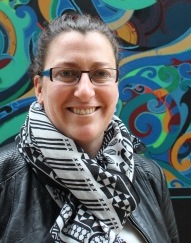 In June, Megan Pōtiki presented on her doctoral research on language loss at Ōtākou, at He Rau Tumu Kōrero IX at Te Rau Aroha Marae in Bluff. This event was run by Te Pouhere Kōrero, the national Māori historians organisation. Megan has also published two journal articles, “The Otago Peninsula: A unique identity” in Shima, 10, 1 (2016): 67-84 [Potiki-Shima-v10n1-3]; and ‘Te Haka Nā Ngā Herehere’ in Te Pouhere Kōrero 8 (2016): 6 –25, and is currently working on another article, “Māori song composition and reclamation of traditional tribal borders” based on a mōteatea she composed for the Te Tumu Kapa Haka group.
In June, Megan Pōtiki presented on her doctoral research on language loss at Ōtākou, at He Rau Tumu Kōrero IX at Te Rau Aroha Marae in Bluff. This event was run by Te Pouhere Kōrero, the national Māori historians organisation. Megan has also published two journal articles, “The Otago Peninsula: A unique identity” in Shima, 10, 1 (2016): 67-84 [Potiki-Shima-v10n1-3]; and ‘Te Haka Nā Ngā Herehere’ in Te Pouhere Kōrero 8 (2016): 6 –25, and is currently working on another article, “Māori song composition and reclamation of traditional tribal borders” based on a mōteatea she composed for the Te Tumu Kapa Haka group.
As part of Māori language week this year Tangiwai Rewi was asked to give a Library research floor talk on Wednesday 13 July on the Ngāruawāhia Turangawaewae regatta, which comes out of her doctoral research and an article last year in the Journal of the Polynesian Society. A display themed around the article was shown in the Hocken Collections for seven weeks as part of Māori language Week. Click here for more details and pictures.
Tangiwai has participated in the Ahi Pepe Resource launch 27 October and Wānanga 26-28 October. She was a collaborator in this project which created an immersion te reo Māori Moths resource depicting the 600+ species endemic to the South Island. Twelve schools were invited to the Wānanga, to participate, learn how to trap, kill and present moths for identification and preservation. Also launched that night were the bilingual and total immersion resource covering the four areas of the South Island.
Tangiwai also attended the SCANZ (Science Communicators Association NZ) conference on 14 November as part of the panel who discussed the resource and preservation of moths.
Tangiwai went north to attend the Te Awamārahi poukai on 24 November. (Poukai are ceremonial gatherings held on Kīngitanga marae.) This was an opportunity to take the photo display back to her marae especially as some of people featured in the photos come from that marae. The photo boards were put on display along with other harakeke resources found along the riverbanks. Needless to say, Tangiwai also vigorously promoted Te Tumu and the University of Otago to all the people who came to view the display.
Postgraduate News
Congratulations to Matangi Schaaf who graduates in December with a PhD; and also to Nikki Walden (Taranaki, Te Āti Awa) and Nurul Sultan with Master of Indigenous Studies degrees. Click here for more details.
Two of our PhD students are submitting in December: John Birnie and Taomi Qiliho-Tapu, and Tāwini White (Ngāi Tahu, Te Rarawa) is making the final amendments to her MA thesis. Rieko Hayakawa‘s PhD thesis ‘Possibility of Telecommunication Universal Service in the Pacific Islands; Case studies of Vanuatu, PEACESAT and USPNet’ has just passed examination. We look forward to these students graduating in the near future.
We have a new PhD student who has just started, Raaniera Te Whata (Ngāpuhi, Ngāti Porou, te Whānau a Apanui), researching communities-based Māori land development in the Bay of Islands. Raaniera comes into doctoral studies after completing an LLB in Auckland and a Master of Indigenous Studies in Te Tumu.
In August Erica Newman who is undertaking PhD research on Fijian Orphanages (1874-1970) presented at the Anthropology and Archaeology Postgraduate Symposium held here in Dunedin.
Matiu Payne (Ngāi Tahu, Ngāti Mutunga), who is researching the impact of government agencies on tikanga whāngai for his doctoral studies, has just been to the Australia New Zealand Law and History Society conference at Curtin University in Perth presenting on his PhD research.
Kelli Te Maihāroa (Waitaha) who is researching Māori peace traditions and their relevance to whānau today, has co-edited an edited collection: H. Devere, K. Te Maihāroa, & J.P. Synott (eds.) Peacebuilding and the Rights of Indigenous Peoples: Experiences and Strategies for the 21st Century, (Springer: Cham, Switzerland, 2016), which includes two co-written and one sole-authored articles by Kelli. She also has an article forthcoming, “Whanaungatanga: Relationships in a One Day Te Reo Māori School of Excellence” in Theobald, M. (Ed.) Friendships in Multilingual Settings (Sociological Studies of Children and Youth, Vol 21 (2016)). Emerald. Kelli, who is a lecturer in the College of Education, also presented at the Teacher Education Forum of Aotearoa New Zealand, in June/July in Dunedin, and at International Indigenous Research Conference in November in Auckland.
Postgraduates Graduating
Te Tumu congratulates our postgraduate students who are graduating this December.
Doctor of Philosophy
Matani Fakatotua Schaaf
Supervisors: Dr. Paerau Warbrick, Prof. Michael Reilly (until 2012, Prof. Brendan Hokowhitu)
Title: Motivation and Burnout in Professional Pasifiki Rugby Players
This thesis examined the participation motivation among professional Pasifiki rugby players. Dominated by Western theories and models, rugby participation research has overlooked the inclusion of a theory or model that is significant to Pasifiki peoples. This research identified what cultural factors exist, that motivate so many Pasifiki peoples to play rugby. This research also highlighted a mismatch between the lived realities of Pasifiki rugby players’ experiences of motivation and burnout, compared to the lived realities of Palāngi rugby players. The most notable outcome, was that Pasifiki rugby players’ experiences were dramatically intensified, by familial, cultural, spiritual and financial obligations; which manifested in burnout, mental illness, substance abuse, binge drinking and failed attempts at suicide.
Master of Indigenous Studies
Te Tumu also has two Master of Indigenous Studies (MIndS) students graduating.
Nurul Sultan, supervised by Dr Lyn Carter, researched “The Relevance of Indigenous Knowledge in Contemporary Research Methodologies”.
Nikki Walden (Taranaki, Te Āti Awa), supervised by Assoc Prof. Merata Kawharu, undertook her MIndS research on “Āhurutanga: the practice and application of a customary Māori principle within a Māori tertiary context. Mā te whakaharatau e tika ai.”
University of Winnipeg student’s blogpost on Otago
Dunedin might be at the “bottom of the world” but we still have people prepared to make their way down here. One such person was Anna Huard, a second-year student in the University of Winnipeg’s MDP (Master’s in Development Practice) programme. While here Anna spent time at Te Kura Kaupapa Māori o Ōtepoti, and with people from Te Tumu. Click here to read about her experiences at Otago from the “University of Winnipeg’s MDP students blogging from the field” site.
He rongo
Aroha mai! A belated roundup of Te Tumu research news.
In July we were treated to Poia Rewi’s Inaugural Professorial Lecture, held to celebrate his ascension to this tūranga rangatira within the university. The title of his talk was “Hoka : Motivators of Time”, a tour alongside Poia as he recounted his own academic journey, and his ZePA model of developing positivity around the use of te reo Māori. This was well attended by Poia’s whānau, staff and students, as well as many from the community, and was capped off with haka, waiata and karakia. The lecture can now be viewed on ITunes U.
In July Te Tumu were privileged to host Professor Michael Harkin as a William Evans Fellow. Professor Harkin, a cultural anthropologist and inaugural editor of Ethnohistory, gave several talks: a public lecture “The Trump at the End of the World: Monsters and Marvels in our Parlous Age”, in which he brought his knowledge of societies past and present together, and a departmental seminar, “‘The Emotional Archive’: The case of Residential Schools in Canada”, in which he examined ‘the relative lack of negative narratives [he] elicited…during fieldwork in British Columbia in the 1980s–2000s’, while also exploring ‘various forms of social memory, proposing the notion of an “emotional archive” that contains non-narrative memory traces’.
It is always great when our students gain their postgraduate degrees, after months or years of working on, and writing up their research. We had three such students graduating this August: Sandra Spence (Pākehā) and Raaniera Te Whata (Ngāpuhi, Ngāti Porou, Te Whānau a Apanui, Airihi) with the Master of Indigenous Studies, and Gianna Leoni (Ngāti Kurī, Ngāti Takoto, Itariana) with a PhD.
Dr Lyn Carter supervised Sandra, whose research was on “Kāi Tahu Chinese Unions and Identity in Otago and Southland/Murihiku”; Associate Professor Merata Kāwharu supervised Rāniera (“Tautoro, tū te ao, tū te pō (The endurance of Tautoro heritage): Investigating challenges and opportunities”); Professor Poia Rewi and Associate Professor Lachy Paterson supervised Gianna (“Mā te Taki te Kāhui Ka Tau: Te Waiaro ki te Reo Māori i ngā Hinonga Kāwanatanga”) who wrote her thesis in te reo Māori. Gianna is teaching MAOR312: Te Māhuri 2 this semster.

